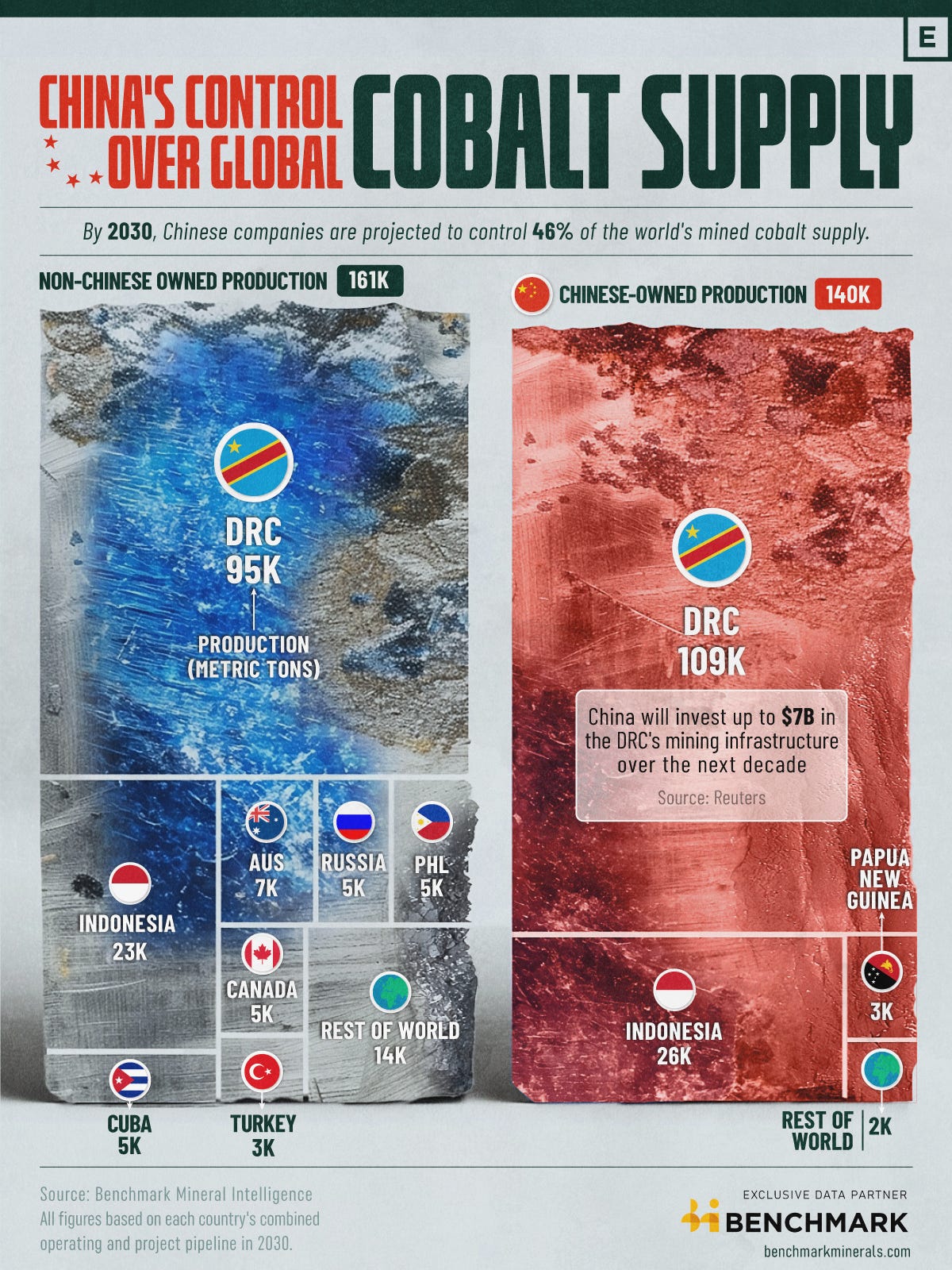"Great empires are not destroyed from without until they’ve first surrendered from within."
— Will Durant
In the early 1960s, the newly independent Republic of the Congo was one of the most geologically strategic nations on Earth. Its Katanga province alone contained colossal reserves of copper, cobalt, uranium, and tin — minerals that had already helped fuel the Allied victory in World War II, including the uranium used in the Hiroshima bomb. The resource wealth attracted deep Western involvement. Belgian mining firms like Union Minière dominated extraction, while American and European governments backed the post-colonial regime to ensure the minerals kept flowing west. But Cold War tensions, internal instability, and a bloody power struggle changed everything. After the CIA-backed assassination of Prime Minister Patrice Lumumba, Congo fell into decades of political chaos.
As Western governments and companies withdrew — wary of coups, nationalizations, and civil war — China began its patient entry. First through diplomatic recognition, then through infrastructure deals, and finally through direct investment in mining operations, Beijing built a long-term presence. Roads, railways, hospitals, and hydropower plants were traded for access to strategic resources. By the 2000s, while Western firms still hesitated, Chinese companies signed multi-decade agreements to extract copper and cobalt at scale. Today, over 60% of the world’s cobalt production — a critical input for batteries and defense systems — is controlled by Chinese firms operating in the Congo. What began as a Western-built supply chain has become a Chinese-dominated strategic artery. Venezuela, with its colossal oil reserves and decaying infrastructure, is now on the same trajectory. Once heavily tied to U.S. energy companies and refineries, it is slipping into China's orbit — quietly, steadily, and with long-term consequences.
The United States didn’t lose Venezuela overnight. It gave it away — slowly, methodically, and now irreversibly. After decades of dominating Venezuela’s vast oil industry through economic muscle and corporate tentacles, Washington is walking away from the hemisphere’s most oil-rich state. No press conference. No fireworks. Just quiet detachment while Beijing picks up the pieces — and the crude.
This isn’t just about diplomacy or ideology. It’s about barrels, infrastructure, and influence. And for the first time in a century, Uncle Sam appears willing to cede all three on his own doorstep. Why?
Let’s walk through what just happened, why it matters, and what Washington may have gained — or lost — in the trade.
Keep reading with a 7-day free trial
Subscribe to The Monetary Skeptic to keep reading this post and get 7 days of free access to the full post archives.




